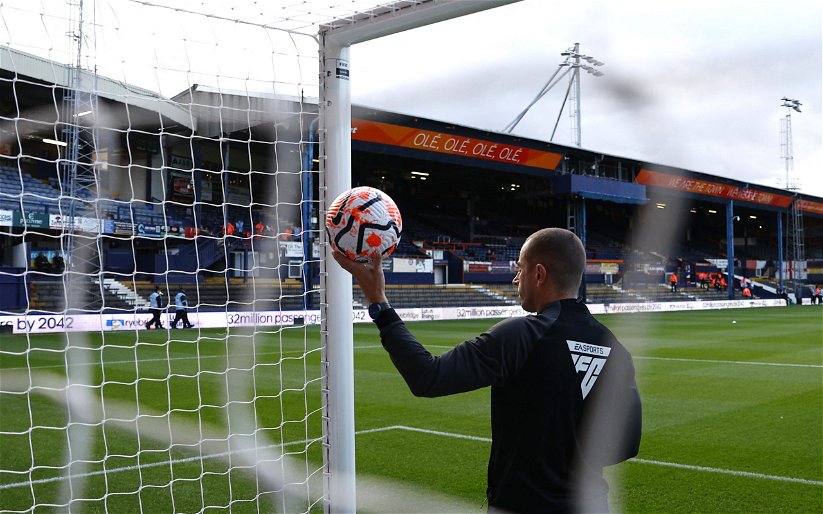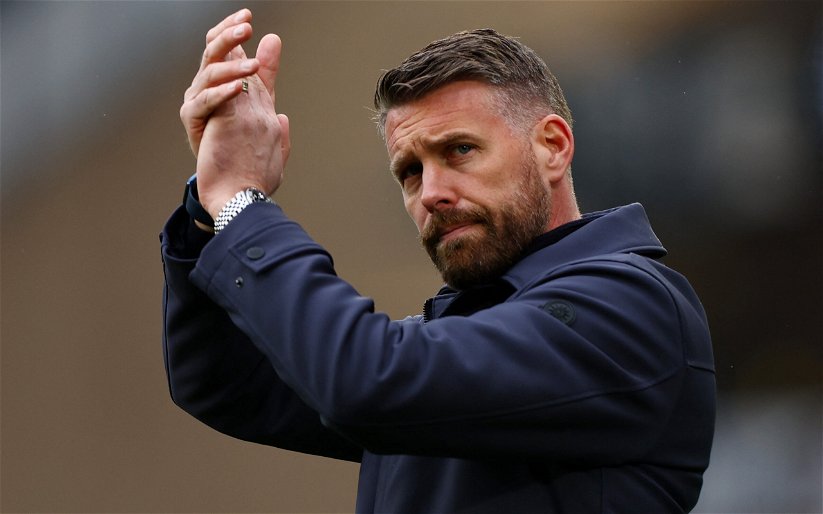There are some political machinations going on behind the scenes with reference to the proposed takeover by Luton Town 2020 Ltd., of which you may be aware, but unaware of the underlying problems, which Luton Town FC has yet to overcome if we are to stay in business.
Fans will always moan about results, performances, appointments and sackings, but the very lifeblood of our beloved club`s existence is, as yet, still under threat, so short term results are irrelevant in the overall scheme of things.
Firstly, Luton Town`s major creditor is HM Revenue and Customs, (HMRC), the debt to whom is said to be in the region of £2.5 million, and equating to approximately 75% of the total indebtedness of the club. The total indebtedness increased by deferral of players` wages when David Pinkney`s funding dried up.
HMRC has a duty to the public to maximise their income from debt owed by companies in administration. They therefore have to negotiate with any company taking over a business in administration / CVA, to gain as high a % of the debt as possible, usually stated in pence in the pound.
In situations of companies in administration or entering into a CVA (company voluntary arrangement), the rules used to be such that the Inland Revenue and Customs and Excise were a priority creditor and therefore were able to demand payment at a higher rate than any one else, apart from football debts, (footballing debts refer to transfer fees owed to other clubs and deferred wages of players), which of course, in a CVA, have to be paid at 100%, or the club loses its golden share and is unable to compete in the Football League. The IR and C&E did not challenge this football debt rule, as they were getting a higher rate than other non-footballing creditors and were seen to have priority status.
However, when the rules of administration and CVA were revised, about two years ago, HMRC lost its priority status and therefore now object to the priority status of football debts, which leaves not just Luton Town, but all football clubs in, or going into, administration, should Tax debts be the major portion of debt, because HMRC, as the major creditor, effectively can veto the offer being made by the incoming company.
It therefore follows that HMRC are effectively in control of whether Luton Town continue trading or not, if no party willing to pay 100% of all debts can be found, or an alternative arrangement cannot be agreed with them.
The FL insists that clubs entering administration must exit through a CVA route. This means football debts must be paid at 100p in the £. Failure to comply with this will result in the FL/FA not approving the re-application for membership. i.e. withholding the Golden Share.
The CVA sets up a new company to buy the remaining assets of the previous business and then applies for the golden share. This allows the administrator to create two tiers of creditors, and the FL has the right to decide whether the new company is suitable to run a membership football club.
So, where does this leave us? Answer: in a cleft stick, as a political football, since the FL demand the CVA route and the HMRC can block the CVA unless it is paid at the same rate as the highest rate creditors, in this case the rate of 100% being paid to footballing debts.
During the apparent quietude of the last few weeks, this is the dilemma that 2020 has been working hard to try to resolve.
There are several solutions, most of which can be seen to be almost impossible to implement.
Firstly, pay everyone off at 100%, which is a possibility, but would bring Mike Newell`s claim for £3.8 million into a different realm. If a lower offer than 100p/£ was accepted by HMRC, Mike may well settle out of court or accept the lower offer, but if 100p/£ was agreed, he would almost certainly continue his litigation resulting in the possibility of his being awarded the full amount together with the high legal costs associated with defending the case. This could cost the consortium upward of £7 million extra to take over the club or, put another way, 70% over budget.
This could also create a precedent similar to the one the Bosman ruling did, to the detriment of all small clubs who, in the future, might find themselves in a similar situation, which would leave Luton Town FC about as popular as they were when they had a plastic pitch and a ban on away supporters!
Secondly, do what Leeds did. They opted for an ‘exceptional circumstances arrangement`, where the new company pay whatever they decide to all creditors, appease the PFA by paying the players in full, and because all the payments are made prior to the transfer of the company to the new owners, the Football League cannot legally withhold the Golden Share. HMRC are seen to get the same as every other unsecured creditor but the Football League, having their power usurped by the club`s failure to use the CVA route will do the only thing they can to show they still have some power and deduct 15 points. Result: certain relegation.
This might seem to be a good idea, take the relegation and start again from the bottom tier, but unfortunately only 7 players are out of contract in the summer leaving 19 high earners remaining in contract for another year at least.
In League 2, the Football League have implemented a capped wages system that allows only 65% of company turnover to be paid in wages, and Luton`s current wage bill exceeds turnover by 20%, which would leave the club unable to stay within the salary cap and therefore an embargo on transfers and loans comes into force coupled with the inevitable fall in gate money and commercial income. Also, with 7 first team squad players lost and only 19 remaining, they may struggle to survive in League 2, let alone build anything, and of course they would be unable to bring any players in.
There are other possible solutions, but these would fall foul of the requirements of one party or another and would have to be carefully considered before taking those paths.
Other issues are also in force, because there is a distinct possibility of a different 15 point deduction if Luton Town are found guilty of the charges against them relating to payments to agents. If they are found guilty and a 15 point penalty imposed, then the option of an ‘exceptional Circumstances arrangement` may be the best option, i.e. take the full 30 points deduction and cope with the difficulties mentioned above, and start again in League 2. If, however, there are no deductions of points due to the charges and the club begins to rise out of the relegation zone, then perhaps the consortium might consider the option of paying the full 100p in the pound and staying in League 1 as a better place to commence the rebuilding programme. However, this would again see the difficulty of a transfer embargo due to the high wages currently being paid.
2020 have been working behind the scenes on other possibilities and on trying to persuade the Government and HMRC, and the Football League to be flexible in the matter and trying to create an altogether more appealing precedent for other clubs who may fall into the same mire as the Hatters.
A debate was held at the House of Commons on Friday at 1:30 when mid beds MP, Nadine Dorries, (Yes the same woman who is so against our moving to Junction 12) who gave a speech and asked questions of a Treasury minister, Jane Kennedy – the financial secretary responsible for the entire HMRC.
2020 asked Dorries to make the case that, if the 2020 consortium is not given flexibility by HMRC the club could fall into the hands of a landowner who wants to use the stadium development to gain planning approval for an adjoining shed development on greenbelt land whilst detaching the club from its core community, which will not be progressive for either entity or perhaps be wound up, depriving the community of one of the oldest Football League clubs in the country.
The questions she was to ask are:
1) Can the Government explain why, if the consortium trying to bring Luton Town out of administration meets mandatory Football League obligations by paying all football creditors in full and all other creditors a reasonable percentage of the money owed, HMRC will object given that such a rejection will inevitably reduce the income for the treasury?
2) If the consortium is forced to reduce its offer to football creditors the Football League will object and will refuse to re-allocate its membership meaning that the oldest Club in the south of England will be unable to play in the league and could be forced out of business altogether. How should the 2020 consortium, which is trying to save a club located at the heart of one of the most deprived areas of the country, reconcile this situation?
3) Given the valuable contribution that Clubs like Luton Town have on their communities and the level of financial contribution football clubs make to the treasury and other businesses, can the government assert authority and influence to make sure that these clubs are operated by fit and proper people?
4) Could I ask the Financial Secretary to join forces with the minister for sport to establish a meeting between the football authorities and the Treasury authorities to reach an agreement on their future handling of football clubs rather than, each time a football club is abused by an opportunistic donor risking the existence of the club and its contribution to the community and Treasury?
5) As I have explained, the fans-backed 2020 consortium have established a reasonable and fair offer to the Treasury for the previous company’s debt and have pledged to prioritise financial stability in order for the club to survive; stability which will ensure that the Treasury will receive ongoing income and that the Club remains at the heart of its community. Can I implore the Financial Secretary to intervene in this particular case to ensure that the 2020 group’s offer to HMRC is accepted in order for the Club to survive?
Overall, matters are far from clear cut and the club may yet have to suffer further indignities before it can stabilise and move on as a self sufficient progressive Football Club. As you will see, there is no easy answer.
However, before fans start to criticise 2020 and its input, it should be remembered that this takeover deal has an initial budget of some £10 million and not many of we ordinary supporters have that sort of money and, if we did, how many of us would risk it on a club with a history of insolvency or have the business ability to create such an excellent business plan to stabilise the club?
It should be pointed out that all these current problems were created by the previous regime/s and that while nothing seems to be happening at the moment, 2020 are committed to this takeover, are working their socks off to find a workable solution within the time scale available and will have left no stone unturned in trying to stabilise the business with the minimum penalty to the football club.
In the meantime, all we can do as supporters is keep faith with 2020, bring to the club as much commercial and gate income as possible and be very patient about results and about receiving news.
Share this article



